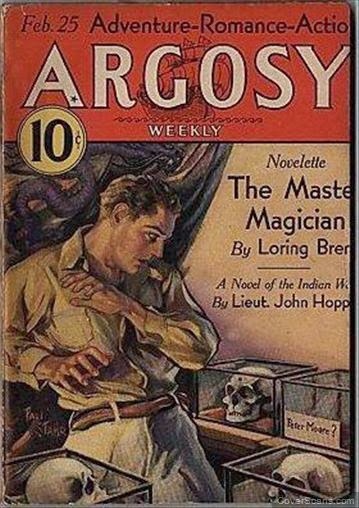Tempting as it is to dive right into the fray of the current kerfuffle, I shall resist.
Lately I’ve been listening to The Big Book of Adventure Stories, put together by Otto Penzler, the legendary editor extraordinaire. The collected stories are odd to modern ears, what with all the assumed racism and adverbs (it may sound odd to pair those two, but believe me, if you spend any time on writer Twitter, you’ll find equal degrees of disdain). I’m not defending either, but they don’t disrupt my enjoyment of the stories.
Through them, I’ve traveled to ancient lands, witnessed epic battles, and been awed by supernatural wonders.
Another thing that stands out to me are the STRONG men and women. I don’t just mean physically strong, but strong of character and strong of will, fully realized archetypes of the sexes. It’s easy to mock them now. “They’re too unrealistic. No one was ever that good. These men are pigs.” We live in a time when people don't believe in virtue and resist inspiration. A hashtag under a picture of sunset doesn't count.
But I’m veering from my intended topic: women.
If we don’t know how to portray men in our stories anymore, we certainly don’t know how to represent man’s equal and opposite counterpart. Right now I’m listening to a Peter the Brazen adventure, written by Loring Brent (pseudonym of one George F. Worts), who, like his hero, was a radio operator. Unlike The Shadow, Peter isn’t fabulously wealthy, nor does he have super powers.
He works for General Electric.
What makes Peter remarkable is his bravery, and the only reason we know he’s brave is because the women in his life force him to prove it. In “The Master Magician” a threat is presented, but Peter isn’t interested if he even believes it’s there. However, Susan, a young woman of his acquaintance who is determined to marry him, loves danger and mystery. It’s her passion that drags Peter in action. And when she’s kidnapped, it’s his desire for her that shows us what he’s made of.
Is the Lois Lane of the Max Fleicher Superman cartoons any different? Or even Nora Charles in The Thin Man movies?
“Oh, but they’re damsels in distress!” the feminists say. Really? To him I say: look again. These ladies devise escapes, push assailants out windows, throw the hero a weapon, or find a clue that solves the case. They need a man to save them as much as the man needs a woman to bring him to life. There was a time when the popular belief that anyone not busy living was busy dying. Also, every hero needs something to pursue, with consequences if he fails. A woman he loves makes it personal. That doesn’t mean she has to lay there limply while he works, and if we’re honest they rarely do.
Equal and opposite.
And the simple truth of the matter is that these stories were written for men and boys, most of whom dream of rescuing a woman. Knowing your audience is always the key to success. You can sanitize and cut adverbs all you want, but if the story doesn’t fire the imagination and fulfill the desires of the audience, no one will read it. Real men don’t want boring women either. The ladies of the old pulps? Dangerous? Yes. Imperiled? Often. But boring? Never.

























